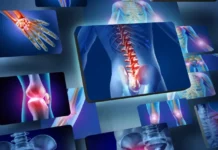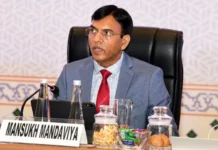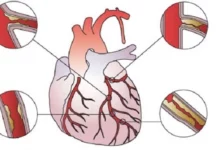NEW DELHI: Patients at several government hospitals in Delhi continued to face hardships as resident doctors went on with their strike and withdrew all services in protest against the National Medical Commission Bill, even as Union Health Minister Harsh Vardhan appealed to them to resume work.
Doctors from several associations have been expressing reservations over certain provisions of the Bill and alleged that these were “anti-poor, anti-student and undemocratic”.
Around Friday midnight, emergency services resumed at most of the hospitals, including AIIMS, RML Hospital and Delhi government-run facilities.
The protesting doctors will continue to withdraw non-essential services, including in out-patient department (OPD).
The decisions were taken at meetings of resident doctor associations that went on till late night.
The resident doctors’ associations of AIIMS, Safdarjung Hospital, RML Hospital and those attached with the Federation of Resident Doctors Association (FORDA) and United Resident Doctors’ Association (URDA) had boycotted work including that at the emergency department and held demonstrations on Thursday over the issue.
They continued their strike on Friday after the passage of the NMC Bill in Rajya Sabha on Thursday evening.
Patients at AIIMS, LNJP Hospital and several other facilities continued to face problems in accessing medical care, many of whom had come from neighbouring cities.
Poonam Rai, 50, a native of Uttar Pradesh, said she had brought her daughter to the capital on Thursday and wanted to consult a doctor, but could not do so and was asked to visit later.
“After coming to Delhi, I realised there was a doctors’ strike. I don’t know how we will manage our stay here as we are putting up on the roadside pavement facing the hospital,” Rai rued.
Resident doctors at Dr Hedgewar Aarogya Sansthan in east Delhi’s Shahdara, which gets a lot of outstation patients, went on strike from Friday morning only.
“The resident doctors were not on strike yesterday, but from today morning they joined the stir, affecting services. Our OPD that gets a daily footfall of about 3,000 is closed and the emergency department is being handled by senior medical officers,” a hospital official said.
Vardhan, meanwhile, appealed to the striking doctors to resume work, saying the Bill was in the “interest” of the doctors and patients.
The health minister made the appeal during a meeting with a delegation of resident doctors from AIIMS and various other associations.
“I have explained to them that this historic bill is in the interest of doctors and patients. I have also addressed queries that they had on certain provisions of the bill.
“I also appealed to them to end their strike. I told them that there is no reason to strike. Doctors should not defy their duties towards patients,” Vardhan said.
FORDA general secretary Sunil Arora said the meeting was “not satisfactory” at least from the association’s perspective.
“We demand that our concerns regarding role of community health providers (CHP) vis-a-vis trained doctors, and the NEXT (National Exit Examination) be addressed,” Arora said.
“Once it goes to the President for assent, we would urge him to send it back to the Lok Sabha for effecting the amendments our fraternity is seeking. A patient care should not given in the hand of quacks, so we are worried,” he said.
On Thursday, Rajya Sabha had passed the National Medical Commission Bill for replacing the corruption-plagued Medical Council of India with a new body, in what was described by the government as one of the “biggest reforms” for medical education in the country.
The bill will now go to the Lok Sabha again as two amendments need to be approved by it.
Asked if the strike would be prolonged, Arora said a call would be taken after a meeting of the protesting doctors.
Hospitals in Delhi have put in place contingency plans as regular services were severely affected.
The emergency departments and ICUs at many hospitals were managed with the help of faculty members, sponsored residents, pool officers, faculty members of other medical or surgical departments, while OPDs, radio-diagnosis and laboratory diagnosis services functioned on a “restricted basis” in some health facilities and shut at many other places.
Routine surgeries were cancelled and only emergency cases were being performed at several facilities, authorities said.
“The provisions of the said bill are nothing short of draconian and promote gross incompetence and mockery of professionals currently working day and night and sacrificing their youth for this broken system,” the AIIMS RDA, the FORDA and the URDA had earlier said in a joint statement. PTI







